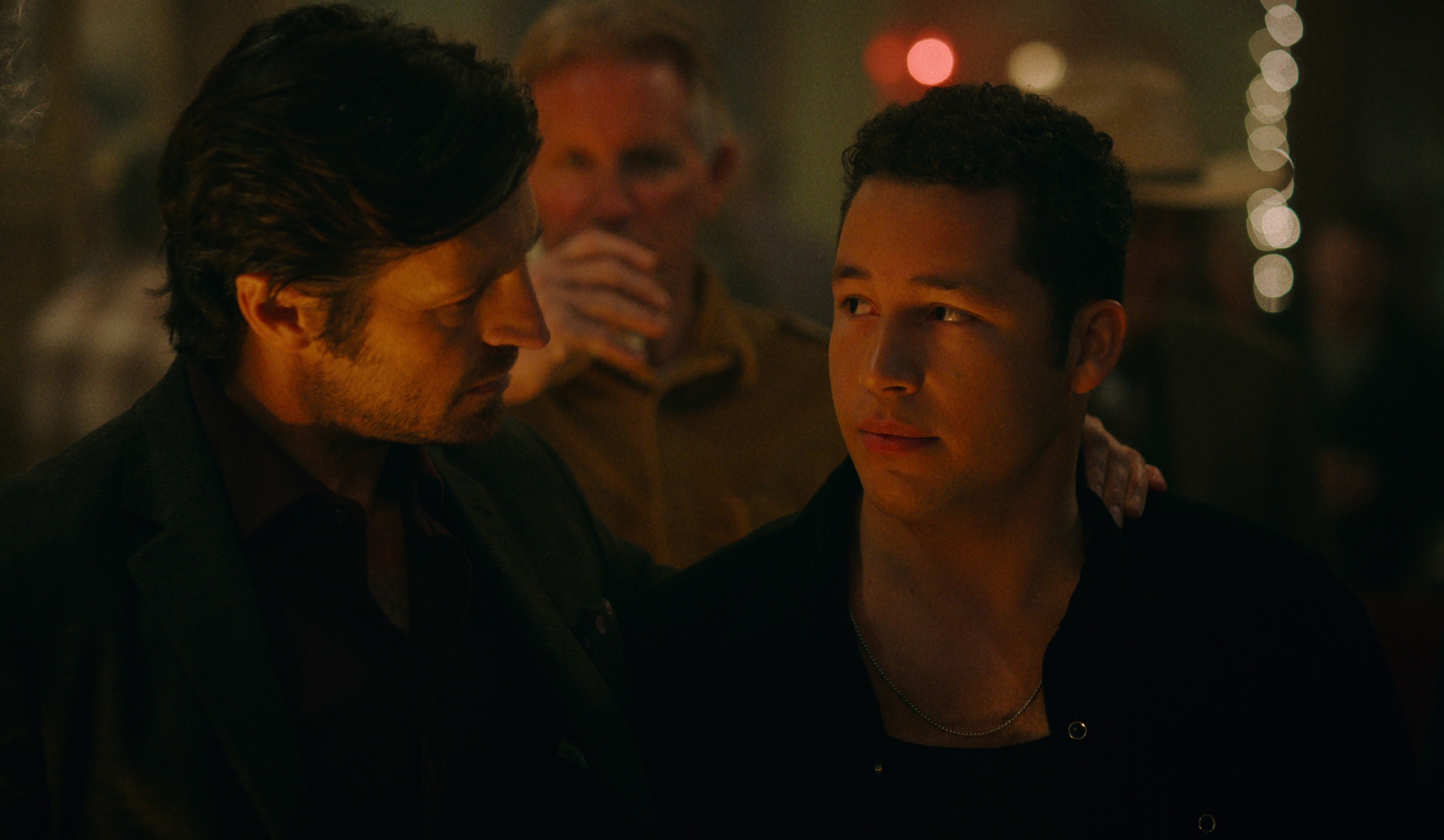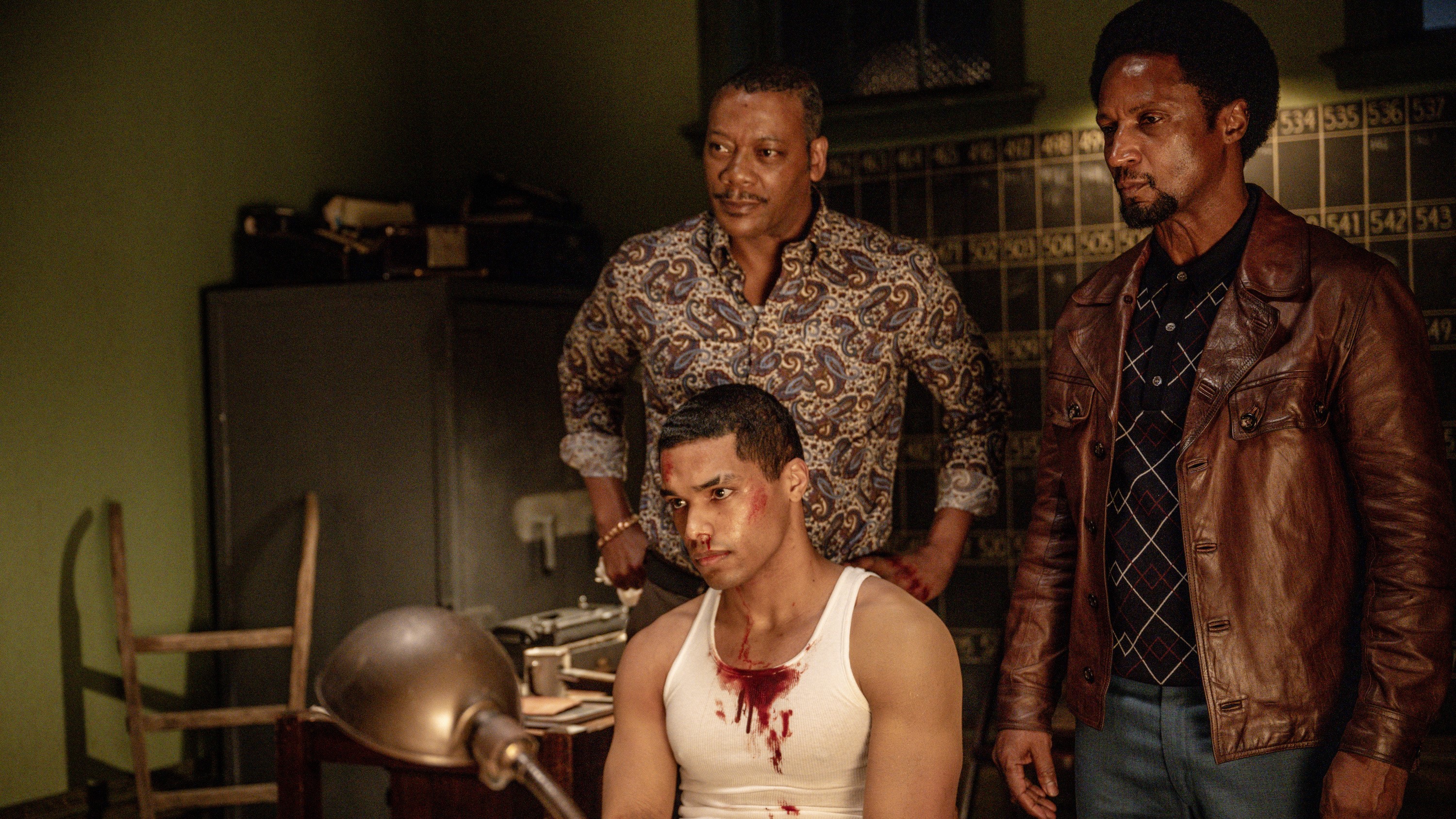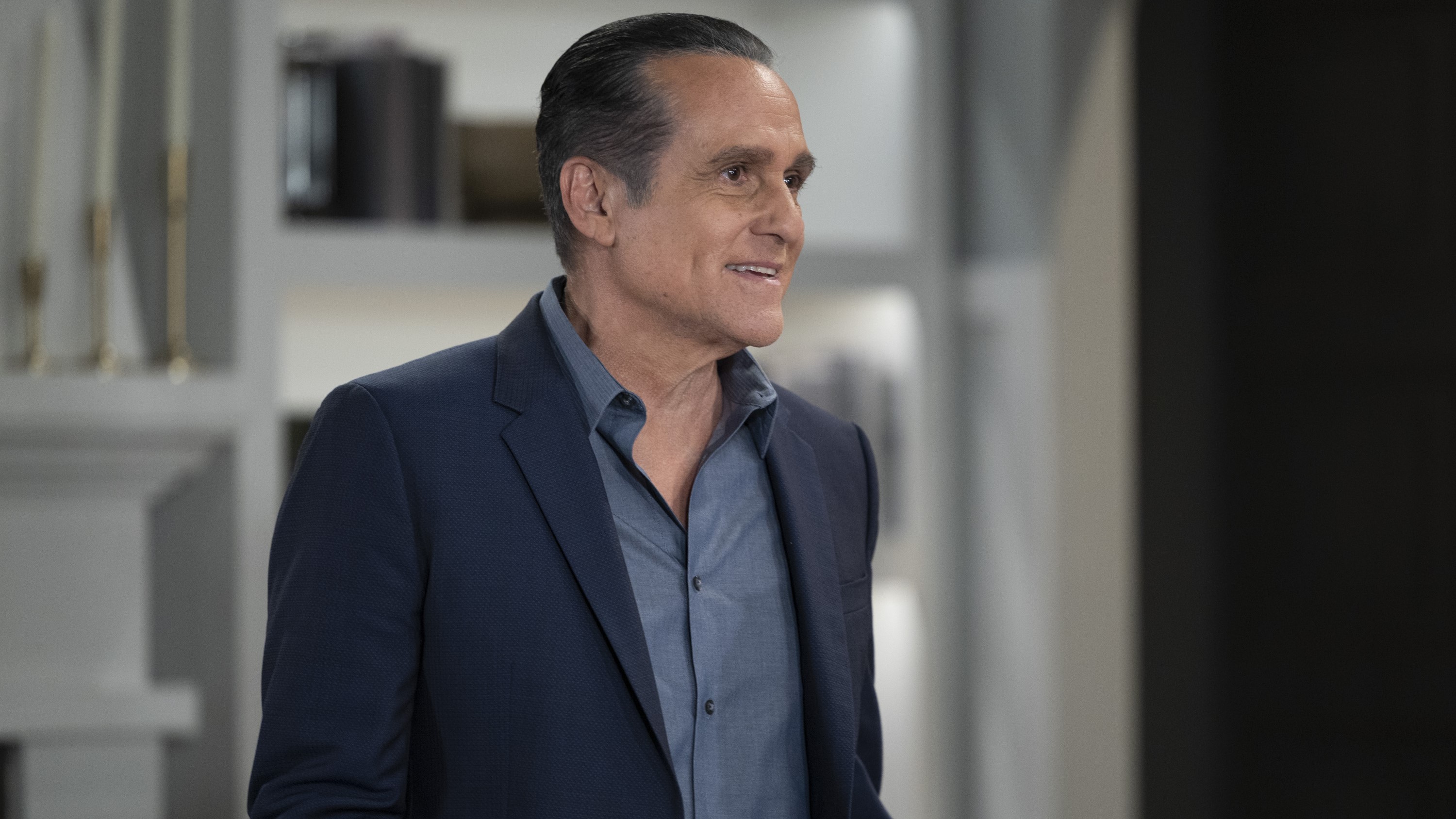‘Impeachment: American Crime Story’ and the Rise of Internet Journalism
The FX series depicts the changing of the guard between print and online news.
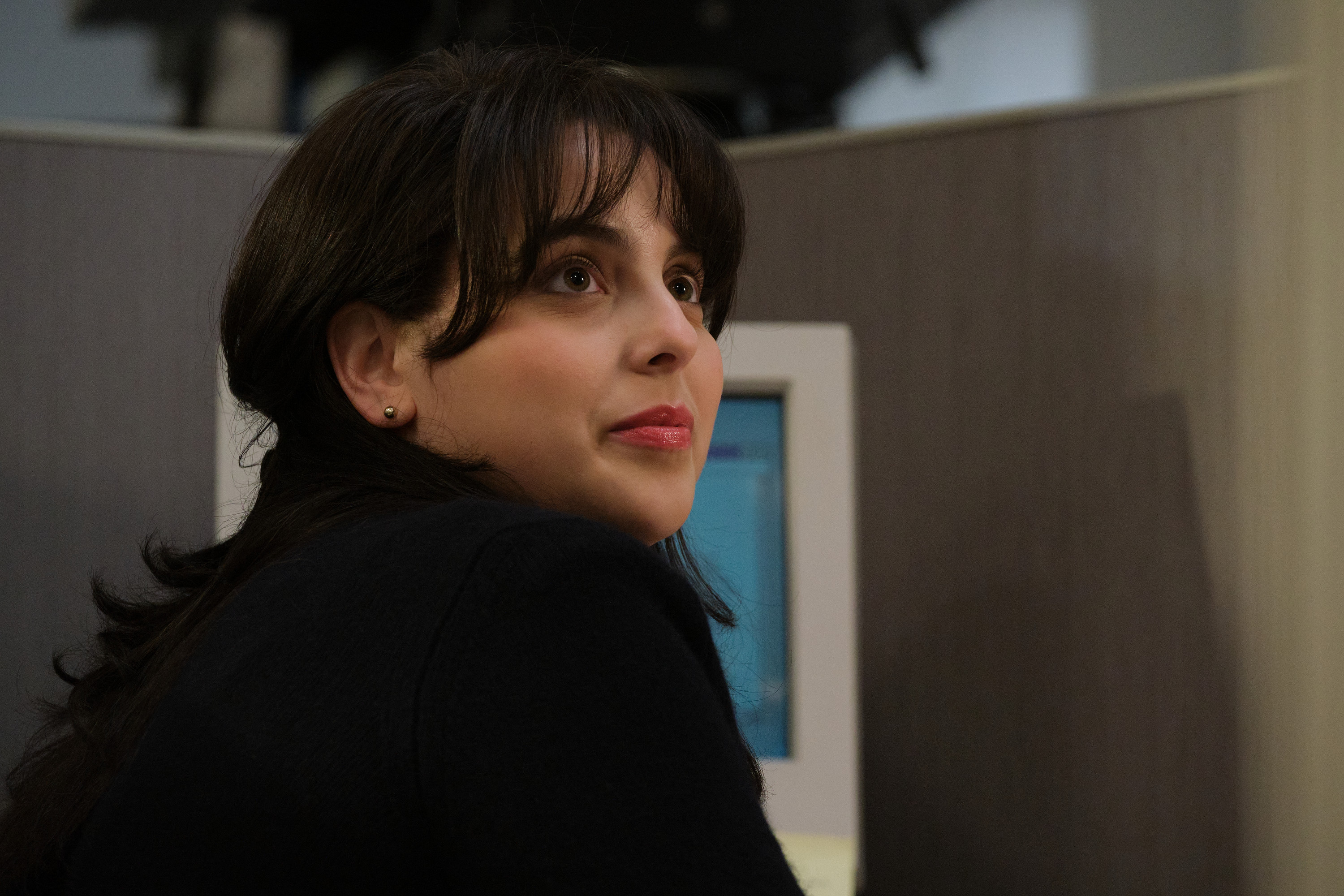
This post contains spoilers for Impeachment: American Crime Story "Not to Be Believed."
When Monica Lewinsky (Beanie Feldstein) goes to the Pentagon City Mall on what seems like a regular January day in 1998 in the first episode, she makes a stop at a newsstand to get something to read while waiting for Linda Tripp (Sarah Paulson). As the camera pans across the kiosk, recognizable titles and cover stars are identifiable. A youthful Leonardo DiCaprio in a post-Titanic world stares back from Vanity Fair, the cast of Seinfeld is on People announcing the end of the popular series (and Jerry is solo on Time), and Rolling Stone features Fiona Apple. Not only is this a snapshot of the pop culture dominating this particular period, but it also points to the publications Monica will soon be featured in. At this point in time, the internet is still in its infancy in terms of breaking stories, and traditional print journalism is still in pole position. However, this political firestorm marks the beginning of the power of online reporting on an international scale, and the third episode of Impeachment: American Crime Story introduces a major player in this shift.
“In 1998, when news of my affair with Bill Clinton broke, I was arguably the most humiliated person in the world. Thanks to the Drudge Report, I was also possibly the first person whose global humiliation was driven by the Internet,” Lewinsky wrote in the June 2014 issue of Vanity Fair. Less than three years before Monica’s stopped by the Pentagon City Mall newsstand, Matt Drudge (Billy Eichner) was working in the CBS gift store and playing his best Walter Winchell by recycling gossip stories from 40 years previous. At the end of his shift in the opening of Episode 3, he grabs his trench coat and is seen dumpster diving for discarded faxes that spill details such as Jerry Seinfeld’s salary before sharing them on the World Wide Web. The dial-up sound and AOL sign-in are the signposts flashing this era in an overt manner. Whereas details like the array of magazine covers are a subtle nod to this decade, the online presence is announced with fanfare. It is as covert as Drudge’s fedora, which he pops on his head when he hits send on the Seinfeld salary scoop.
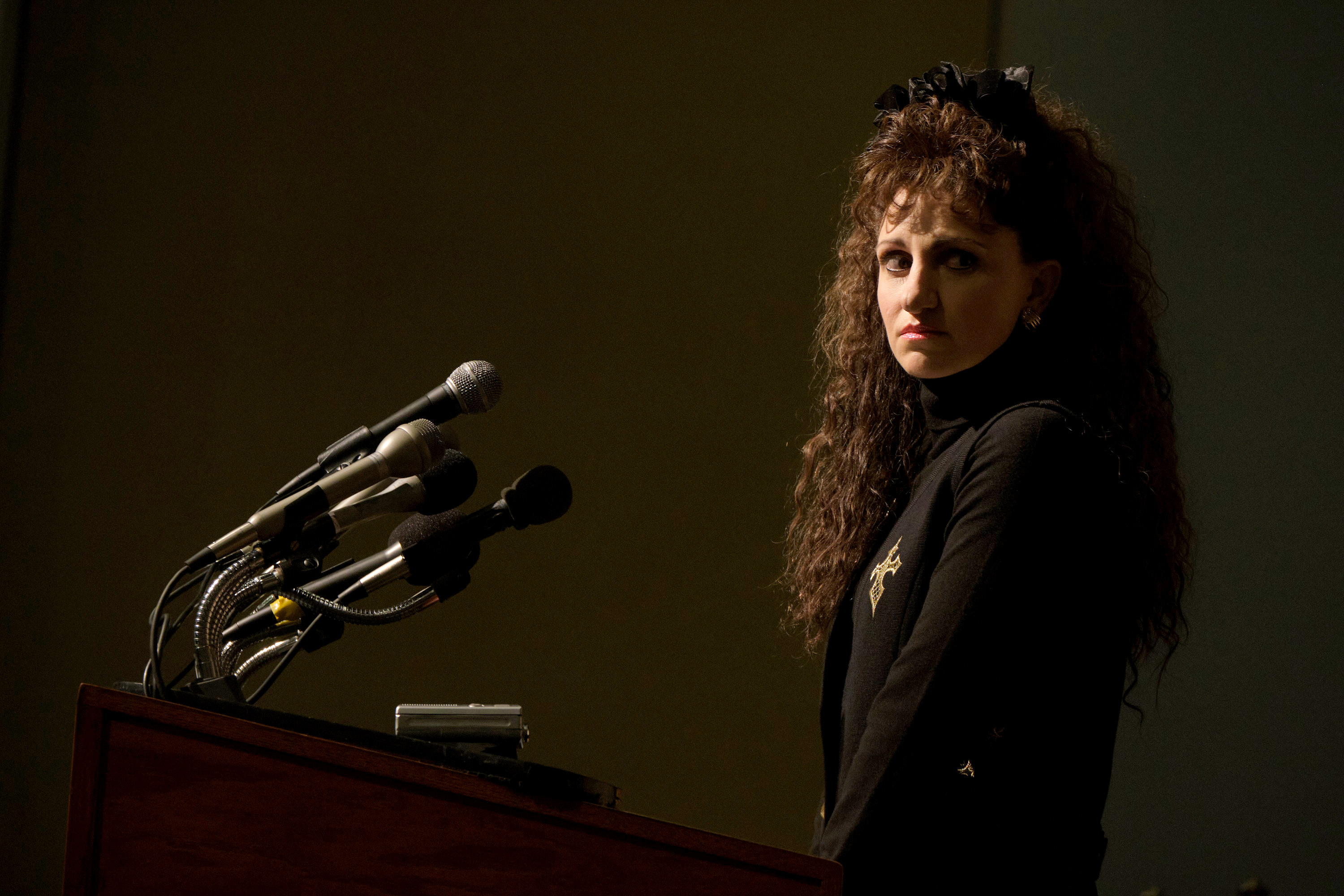
Before Drudge comes on the scene as one of the Impeachment provocateurs, magazine journalism had already played a huge role in the origins of this story. Paula Jones (Annaleigh Ashford) is introduced in “Exiles” having bought a copy of The American Spector featuring a story with the incendiary title “His Cheating Heart.” This article about Bill Clinton’s alleged infidelity was published in December 1993 and mentions a woman by the name of Paula. It was this piece that led to the historic lawsuit against the president and a deposition five years after publication that would almost end a presidency. In Jeffery Toobin’s 2020 introduction to his 1999 best-seller A Vast Conspiracy: The Real Story of the Sex Scandal That Nearly Brought Down a President — this book serves as source material for Impeachment — he observes “The Clinton-Lewinsky story heralded a moment when media gatekeepers relinquished their monopoly over the news, in some cases ceasing to exist. Broadcast network news, major newspapers, newsweeklies like Newsweek all surrendered their authority to the scrum of Internet competitors.” Similar to the O.J. Simpson and Andrew Cunanan ACS seasons, the media plays a huge role in the plotting and recentering of the narrative at play. Later on, the treatment of Monica after her name is revealed to the press will no doubt be significant, but even in the first episode with Paula, it is easy to see how unfairly the women in these stories are treated when thrust into the spotlight.
The reason why Toobin mentions Newsweek by name is that Michael Isikoff (Danny Jakobs) is a reporter at this magazine and is the key journalist in this whole saga. He first broke the story about Kathleen Willey (Elizabeth Reaser), which is also the first mention of Linda Tripp’s name in this magazine — Tripp gives a different version of events to another former friend. Earlier in “Not to Be Believed,” Isikoff is visited at his office by none other than Matt Drudge who quips that the office is “very All the President’s Men.” The old school newsman is unsure of what image Drudge is selling and asks “Is this for real?” He can’t wrap his head around his affected voice coupled with the fedora and trench coat — he calls Drudge’s clothes a “costume” — but it is his method he has a harder time reconciling with. Isikoff calls out Drudge’s lack of a degree in journalism as an issue, which comes across as elitist, particularly when a lack of finances is why the younger man didn’t go to college. Online access allows for people who can’t go to fancy institutions a point of entry as Drudge explains, “One day I buy a modem and the whole news business cracks wide open.” The unsourced aspect of this work is something Isikoff rightly bristles at and he has higher-ups to answer to when chasing down a story. He can’t hit publish on a whim without multiple sources and an ironclad fact check whereas gossip is what Matt Drudge is inquiring about.

“Back when hacks had a knife and knew how to use one” are the halcyon days that Drudge refers to, but this new world of internet reporting is even more cutthroat at planting seeds regarding indiscretions because it has speed on its side. A newsweekly periodical has a very specific print deadline whereas an internet post doesn’t come with any publishing parameters. For all of the faults in these early episodes — the choppy timeline being one of them — this portrayal of Drudge as a bridge between gossip reporters like Walter Winchell and the death knell of print journalism domination is insightful and effective. The seachange doesn’t even factor in how social media and the 24-hours news networks changed things further, but there is no doubting the role internet journalism has in taking over from the magazines breaking big political stories.
Magazines and the internet are not the only platforms trying to scoop the competition and the book market also shaped this scandal. Literary agent Lucianne Goldberg (Margo Martindale) is a huge driving force from the safe distance of her New York City home. Toobin describes Goldberg as reflecting “the new face of American politics — personal, petty, and mean.” The overlap between print and online is driven by a potent cocktail of self-interest, money, and the desire to get Clinton out of office. Whereas Newsweek doesn’t have a political bias at this time, competitors are less concerned with these impartial optics and have an agenda. Isikoff corrects Drudge when he makes a comment about him being on the “sex beat.” Yes, he has investigated Clinton’s personal dealings but it is under the “abuse of power” umbrella. Titillating stories have always sold and this event proves this further — and those scoring scoops have different motives.
Get the What to Watch Newsletter
The latest updates, reviews and unmissable series to watch and more!
Returning to Monica’s purchase at the newsstand in the first episode as it doesn’t feel like a coincidence that she picks up a magazine that is no longer in circulation. Perhaps the issue of Jane featuring Courtney Cox on the cover is something Monica read, but this choice out of a newsstand worth of titles is telling — or maybe she was a Friends fan? The magazine industry is headed for a reckoning that will not be survived by all and Jane is one of many that no longer exists. If she had picked up Vanity Fair, she would’ve come across a feature on the new Mike Nichols movie Primary Colors, which is a thinly veiled portrayal of Clinton’s run to the Democratic candidate for president. Maybe this would’ve been too on the nose and a knowing wink stretching credulity. While this American Crime Story is about misogyny and abuse of power, it is also about how we consume the news and the people who report on it. Monica is at the center of this storm and little did she know that she would end up having her photo taken by Herb Ritts for this publication only a few months later — and end up becoming "the first person whose global humiliation was driven by the Internet."
Emma Fraser spends most of her time writing about TV, fashion, and costume design; Dana Scully is the reason she loves a pantsuit. Words can also be found at Vulture, Elle, Primetimer, Collider, Little White Lies, Observer, and Girls on Tops. Emma has a Master’s in Film and Television, started a (defunct) blog that mainly focused on Mad Men in 2010, and has been getting paid to write about TV since 2015. It goes back way further as she got her big start making observations in her diary about My So-Called Life’s Angela Chase (and her style) at 14.





